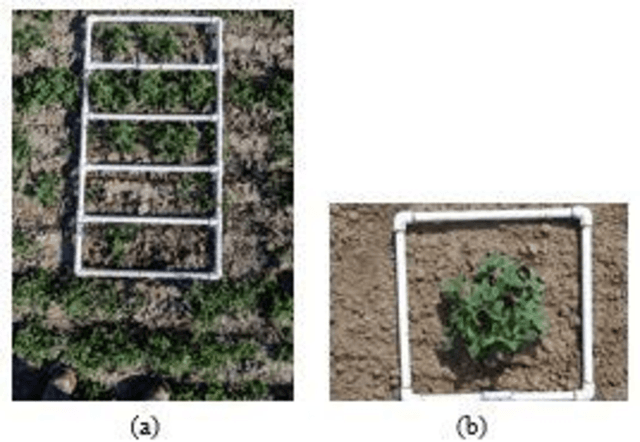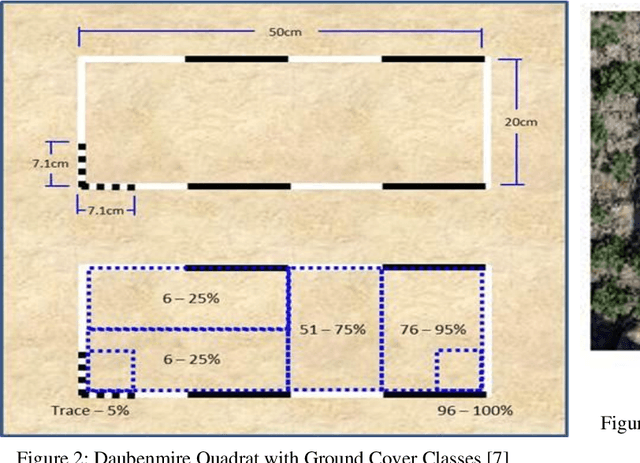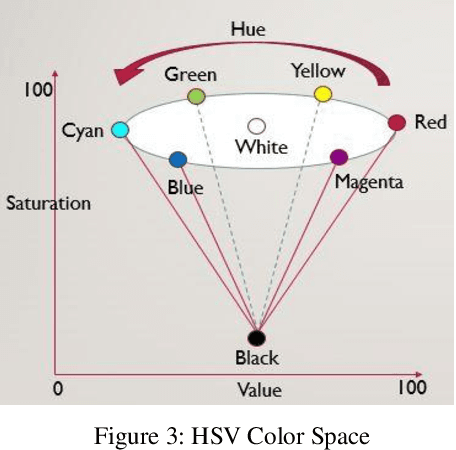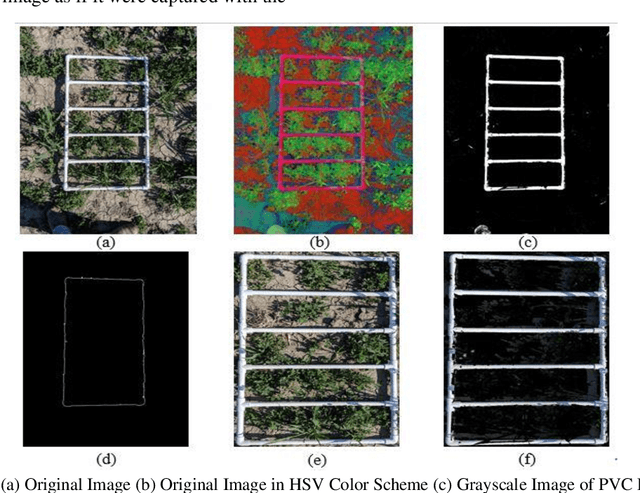Fractional Vegetation Cover Estimation using Hough Lines and Linear Iterative Clustering
Paper and Code
Apr 30, 2022



A common requirement of plant breeding programs across the country is companion planting -- growing different species of plants in close proximity so they can mutually benefit each other. However, the determination of companion plants requires meticulous monitoring of plant growth. The technique of ocular monitoring is often laborious and error prone. The availability of image processing techniques can be used to address the challenge of plant growth monitoring and provide robust solutions that assist plant scientists to identify companion plants. This paper presents a new image processing algorithm to determine the amount of vegetation cover present in a given area, called fractional vegetation cover. The proposed technique draws inspiration from the trusted Daubenmire method for vegetation cover estimation and expands upon it. Briefly, the idea is to estimate vegetation cover from images containing multiple rows of plant species growing in close proximity separated by a multi-segment PVC frame of known size. The proposed algorithm applies a Hough Transform and Simple Linear Iterative Clustering (SLIC) to estimate the amount of vegetation cover within each segment of the PVC frame. The analysis when repeated over images captured at regular intervals of time provides crucial insights into plant growth. As a means of comparison, the proposed algorithm is compared with SamplePoint and Canopeo, two trusted applications used for vegetation cover estimation. The comparison shows a 99% similarity with both SamplePoint and Canopeo demonstrating the accuracy and feasibility of the algorithm for fractional vegetation cover estimation.
 Add to Chrome
Add to Chrome Add to Firefox
Add to Firefox Add to Edge
Add to Edge